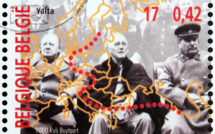

In this section of Campus, EuropeNow features a selection of scholarly articles and books on topics pertinent to the teaching of Europe or teaching in Europe that were published within the last 5 years. This dynamic bibliography, with monthly installments, seeks to highlight both pedagogy research as well as critical analyses of debates taking place in higher education in and about Europe.
If you are interested in reviewing any of the books featured in any of our Campus Round-Ups, please contact our Research and Pedagogy Chair, Hélène Ducros, at helene@alumni.unc.edu
1. Higher education policy dynamics in turbulent times – access to higher education for refugees in Europe
By Jens Jungblut, Martina Vukasovic, and Isabel Steinhardt
Abstract: Apart from teaching, research and service to society, since 2015 higher education systems and institutions in Europe have faced an additional expectation – to respond to the largely unexpected yet nevertheless growing demand for higher education by refugees. This study explores system and organizational level responses to such environmental pressures in Germany and Flanders, both affluent systems, but different in terms of size, attractiveness as destination and the extent to which their languages are widely spoken. Relying primarily on document analysis and interviews, the study highlights three elements of policy dynamics: policy styles, main drivers, and extent of involvement of non-state actors. While, as expected, in both systems the dynamics were re-active, solution-driven, and with strong involvement of non-state actors, contrary to expectations both countries responded primarily in a bottom-up manner. The study provides a conceptual tool and a first empirical insight into this novel phenomenon.
Find this article in Studies in Higher Education here
2. The Decline and Renaissance of Universities: Moving from the Big Brother University to the Slow University
By Renzo Rosso
Abstract: Instead of following the Magna Charta Universitatum, the declaration of the principles of knowledge signed in 1988 in Bologna, the academic approach pursued in Europe and the other continents over the past 30 years has strictly employed a utilitarian model of higher education. This jeopardizes academic freedom, shared governance and tenure, the three pillars of the long-established model of universities. Scientific conformism and fragmentation, educational bias and authoritarianism are the major drawbacks, together with a poor readiness to meet the emerging challenges in the labor market and technology. In this book, Renzo Rosso presents a new model for countering these developments, e.g. by establishing novel democratic rules for university governance. The Slow University paradigm positions culture and education as essential tools for the long-term survival of humankind.
Find this book at Springer International Publishing here
3. Higher education in a globalizing world: Community engagement and lifelong learning
By Peter Mayo
Abstract: This book focuses on current policy discourse in Higher Education, with special reference to Europe. It discusses globalisation, Lifelong Learning, the EU’s Higher Education discourse, this discourse’s regional ramifications and alternative practices in Higher Education from both the minority and majority worlds with their different learning traditions and epistemologies. It argues that these alternative practices could well provide the germs for the shape of a public good oriented Higher Education for the future. It theoretically expounds on important elements to consider when engaging Higher Education and communities, discussing the nature of the term ‘community’ itself. Special reference is accorded to the difference that lies at the core of these ever-changing communities. It then provides an analysis of an ‘on the ground project’ in University community engagement, before suggesting signposts for further action at the level of policy and provision.
Find this book at Manchester Scholarship Online here
4. Redesigning the museum studies programme at the University of Helsinki: towards collaborative teaching and learning
By Suzie Thomas, Anna Wessman, and Eino Heikkilä
Abstract: The University of Helsinki has made significant changes to its educational frameworks and degree programmes. For museum studies the changes have been particularly far-reaching. From autumn 2017 onwards there has been a reduction in the total number of study credits available, but also a move from bachelors- to masters-level teaching. This upheaval presented an opportunity to redesign the course in an inclusive way, consulting both with museum professionals and museum studies graduates in Finland and further afield. The resulting courses aim to implement collaboratively the preferences of these consultees, while staying true to the university’s own requirements. In this article, we reflect upon the evaluation process and offer insights that we hope are useful both to museum professionals that have (or wish to have) a relationship with a university museum studies programme, and also for the teachers and researchers involved in devising and delivering these programmes.
Find this article in Museum Management and Curatorship here
5. Higher Education and Working-Class Academics: Precarity and Diversity in Academia
By Teresa Crew
Abstract: This book examines how a working-class habitus interacts with the elite culture of academia in higher education. Drawing on extensive qualitative data and informed by the work of Pierre Bourdieu, the author presents new ways of examining impostor syndrome, alienation and microaggressions: all common to the working-class experience of academia. The book demonstrates that the term ‘working-class academic’ is not homogenous, and instead illuminates the entanglements of class and academia. Through an examination of such intersections as ethnicity, gender, dis/ability, and place, the author demonstrates the complexity of class and academia in the UK and asks how we can move forward so working-class academics can support both each other and students from all backgrounds.
Find this book at Palgrave Macmillan here
Photo: Gadgets and technology | Shutterstock
Published on February 9, 2021.




